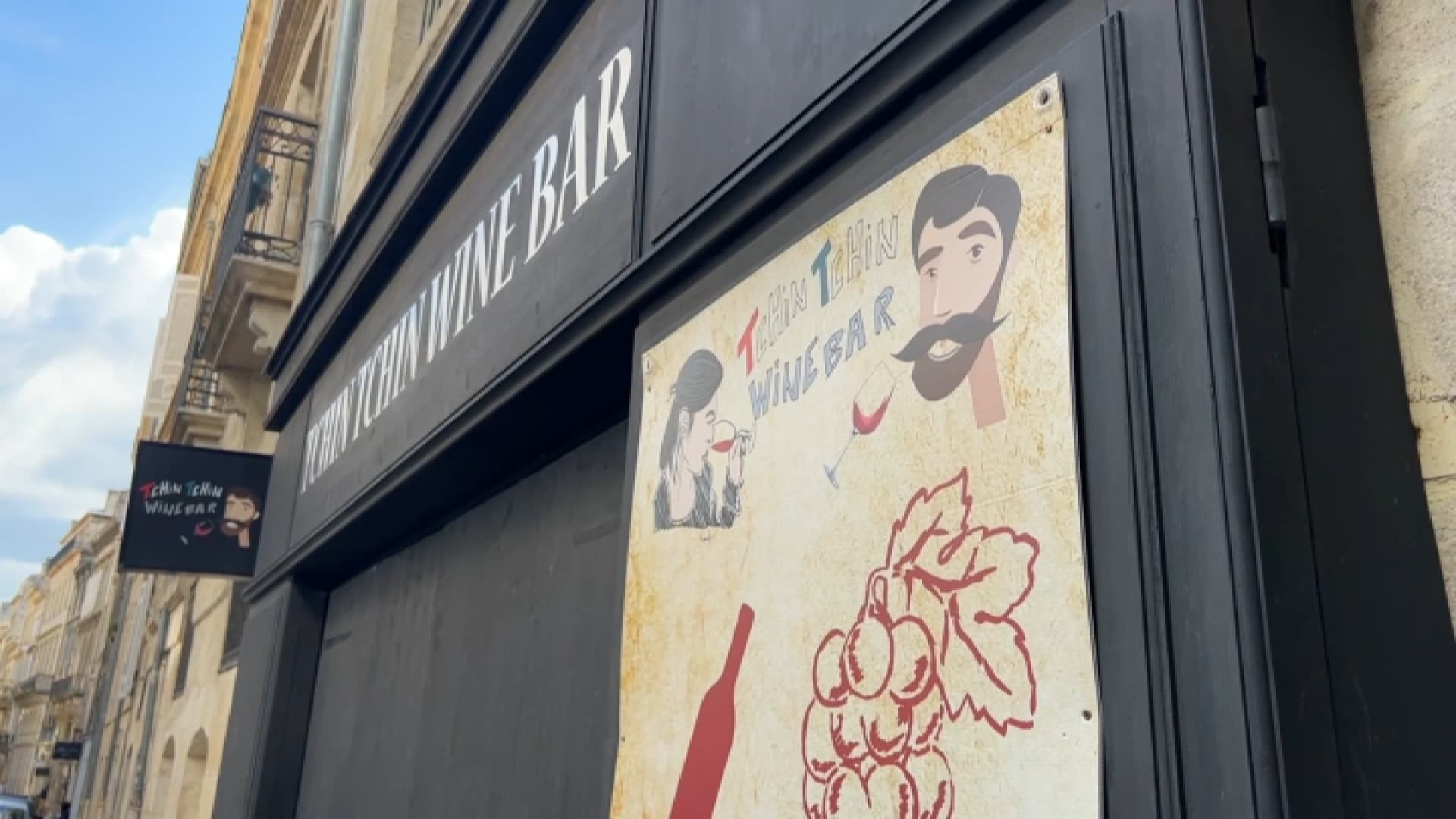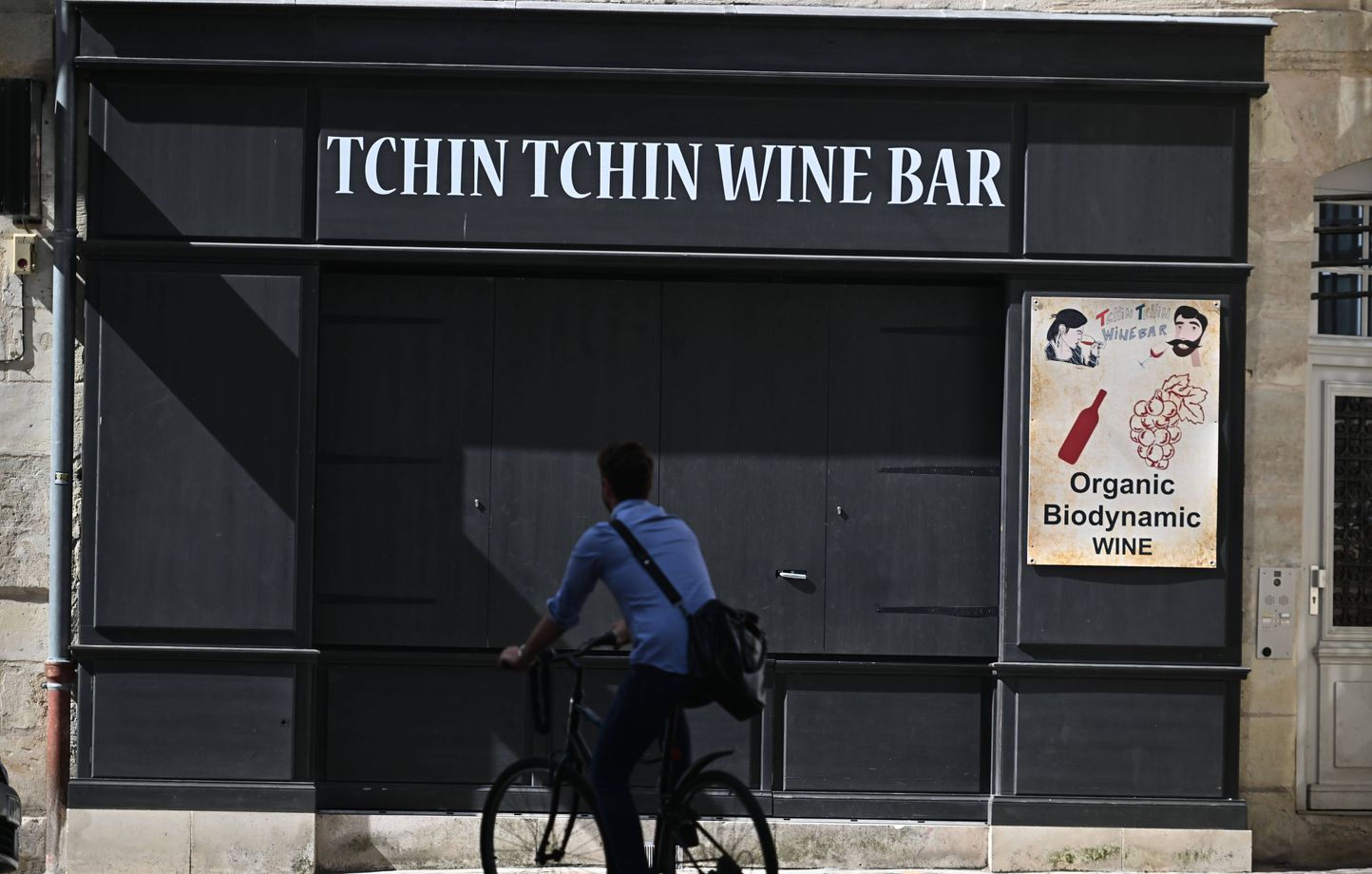Translation Google
Emergency Serious food poisoning: 10 cases of botulism, including 8 hospitalized and 1 death, linked to visiting a restaurant in Bordeaux
The health authorities, in conjunction with Public Health France and the National Reference Center for Botulism (Institut Pasteur) recommend that people who have visited the Bordeaux establishment Tchin Tchin Wine Bar (3 Rue Emile Duployé, 33000 Bordeaux) between Monday 4 and Sunday September 10, 2023 to consult a doctor urgently or to contact 15, mentioning cases of botulism, in the event of symptoms appearing after this attendance.
Published on September 13, 2023
Contacts presse
Public Health France
presse@santepubliquefrance.fr
Marie Delibéros: 01 41 79 69 61
Stéphanie Champion: 01 41 79 67 48
Cynthia Bessarion: 01 71 80 15 66
Charlène Charbuy: 01 41 79 68 64
The people concerned all frequented the same restaurant-bar in Bordeaux, the Tchin Tchin Wine Bar, over the last week. The suspected foods are at this stage canned sardines in oil homemade by the restaurateur and served between September 4 and 10, 2023 in this Bordeaux restaurant.
Botulism is a serious disease (fatal in 5 to 10% of cases) whose incubation time can range from a few hours to a few days.
Symptoms include, to varying degrees: early digestive signs which may be fleeting (abdominal pain, nausea, vomiting and diarrhea), eye damage (failure to accommodate, blurred or double vision), dry mouth accompanied by a lack of swallowing or even speech, or neurological symptoms (wrong paths, more or less severe paralysis of the muscles). There is usually no fever.
If you have symptoms, consult a doctor urgently or contact 15, mentioning cases of botulism.
What are the possible sources of contamination?
Botulism is a serious neurological condition caused by a very potent toxin produced by the bacteria Clostridium botulinum. It develops particularly in poorly preserved foods. In France, the majority of cases of botulism correspond to food poisoning, by ingestion of the toxin produced by C. botulinum in preserved foods that have not undergone an extensive sterilization process: cured meats, cold meats or even family-made preserves. or artisanal.
It is the extremely powerful toxin that it synthesizes that is responsible for the disease.
Treatment and prevention
The treatment of botulism is essentially symptomatic and requires, in severe forms, intensive respiratory care with assisted ventilation. Administration of anti-botulinum toxin in the hours or first days after the onset of symptoms can shorten the hospitalization time.
The vast majority of patients treated without delay recover without after-effects, but the duration of treatment and convalescence can last several months.
...
https://www.santepubliquefrance.fr/p...ant-a-bordeaux
Emergency Serious food poisoning: 10 cases of botulism, including 8 hospitalized and 1 death, linked to visiting a restaurant in Bordeaux
The health authorities, in conjunction with Public Health France and the National Reference Center for Botulism (Institut Pasteur) recommend that people who have visited the Bordeaux establishment Tchin Tchin Wine Bar (3 Rue Emile Duployé, 33000 Bordeaux) between Monday 4 and Sunday September 10, 2023 to consult a doctor urgently or to contact 15, mentioning cases of botulism, in the event of symptoms appearing after this attendance.
Published on September 13, 2023
Contacts presse
Public Health France
presse@santepubliquefrance.fr
Marie Delibéros: 01 41 79 69 61
Stéphanie Champion: 01 41 79 67 48
Cynthia Bessarion: 01 71 80 15 66
Charlène Charbuy: 01 41 79 68 64
The people concerned all frequented the same restaurant-bar in Bordeaux, the Tchin Tchin Wine Bar, over the last week. The suspected foods are at this stage canned sardines in oil homemade by the restaurateur and served between September 4 and 10, 2023 in this Bordeaux restaurant.
Botulism is a serious disease (fatal in 5 to 10% of cases) whose incubation time can range from a few hours to a few days.
Symptoms include, to varying degrees: early digestive signs which may be fleeting (abdominal pain, nausea, vomiting and diarrhea), eye damage (failure to accommodate, blurred or double vision), dry mouth accompanied by a lack of swallowing or even speech, or neurological symptoms (wrong paths, more or less severe paralysis of the muscles). There is usually no fever.
If you have symptoms, consult a doctor urgently or contact 15, mentioning cases of botulism.
What are the possible sources of contamination?
Botulism is a serious neurological condition caused by a very potent toxin produced by the bacteria Clostridium botulinum. It develops particularly in poorly preserved foods. In France, the majority of cases of botulism correspond to food poisoning, by ingestion of the toxin produced by C. botulinum in preserved foods that have not undergone an extensive sterilization process: cured meats, cold meats or even family-made preserves. or artisanal.
It is the extremely powerful toxin that it synthesizes that is responsible for the disease.
Treatment and prevention
The treatment of botulism is essentially symptomatic and requires, in severe forms, intensive respiratory care with assisted ventilation. Administration of anti-botulinum toxin in the hours or first days after the onset of symptoms can shorten the hospitalization time.
The vast majority of patients treated without delay recover without after-effects, but the duration of treatment and convalescence can last several months.
...
https://www.santepubliquefrance.fr/p...ant-a-bordeaux




Comment